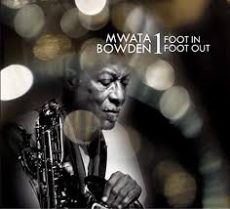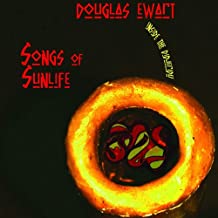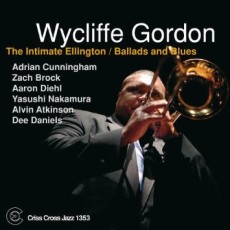
Daily Dose Of Jazz…
Mwata Bowden was born on October 11, 1947 in Memphis, Tennessee. He is part of a group known as 8 Bold Souls and frequently engages in collaborations with Tatsu Aoki. He helped establish the Miyumi Project which was a blend of music with different ethnic backgrounds, highlighting contributions from Japanese taiko drumming in the framework of jazz music.
As part of his regular repertoire, Bowden plays a range of saxophones and clarinets, including the E-flat clarinet, B-flat clarinet, bass clarinet, contra-alto clarinet, and contrabass clarinet, as well as flute, zamada, and didgeridoo.
As an instructor in improvisational jazz at the University of Chicago teaches young aspiring musicians in the Chicago area. Saxophonist, clarinetist and flutist Mwata Bowden, who is a part of the Association for the Advancement of Creative Musicians, continues to perform.
More Posts: bandleader,clarinet,didgeridoo,flute,history,instrumental,jazz,music,saxophone,zamada

Daily Dose Of Jazz…
Douglas Ewart was born on September 13, 1946 in Kingston, Jamaica and emigrated to the United States in 1963. Settling in Chicago, Illinois he became associated with the Association for the Advancement of Creative Musicians (AACM) in 1967, studying with Joseph Jarman and Roscoe Mitchell. He served as that organization’s president from 1979 to 1986.
Douglas recorded eight albums as a leader and has performed or recorded fifteen with J. D. Parran, Muhal Richard Abrams, Art Ensemble of Chicago, Anthony Braxton, Alvin Curran, Anthony Davis, Robert Dick, Von Freeman, Joseph Jarman, Amina Claudine Myers, Roscoe Mitchell, James Newton, Rufus Reid, Wadada Leo Smith, Cecil Taylor, Richard Teitelbaum, Henry Threadgill, Hamid Drake, Don Byron, Malachi Favors Maghostut, Muhal Richard Abrams, Spencer Barefield, Tani Tabbal, Jean-Luc Cappozzo, Joëlle Léandre, Bernard Santacruz, Michael Zerang, Chico Freeman, Dennis González, Yusef Lateef, Adam Rudolph,
In 1992 he collaborated with Canadian artist Stan Douglas on the video installation Hors-champs which was featured at Documenta 9 in Kassel, Germany. The installation features Ewart in improvisation of Albert Ayler’s Spirits Rejoice with musicians George Lewis, Kent Carter, and Oliver Johnson.
Douglas Ewart has lived in Minneapolis, Minnesota since 1990 and plays sopranino and alto saxophones, clarinets, bassoon, flute, bamboo flutes, panpipes, and didgeridoo; as well as Rastafarian hand drums.
More Posts: bamboo flute,bassoon,clarinet,didgeridoo,flute,hand drums,history,instrumental,jazz,music,panpipe,saxophone
Daily Dose Of Jazz…
Pops Mohamed was born Ismail Mohamed-Jan on December 10, 1949 in Benoni, Gauteng, South Africa. His career in music was the logical outcome of an early exposure at Dorkay House to the likes of Abdullah Ibrahim and Kippie Moeketsi. He started his first band The Valiants at 14.
Known by fans as the Minister of Music, Pops plays a wide variety of instruments, African mouth bow, bird whistle, berimbau, didgeridoo, guitar, keyboard, kora, and the thumb piano. He is also known for his wide range of musical styles which include jazz, kwela, pop, and soul. He produced Finding One’s Self, the late Moses Taiwa Molelekwa’s award-winning album.
His recorded his debut album Kalamazoo in 1991 and has since recorded eleven more, his last to date being 205’s Mood Africa. He performs regularly with and sits on the board of the Johannesburg Youth Orchestra Company. Multi-instrumentalist, jazz musician and producer Pops Mohamed, who plays the African mouth bow, bird whistle, berimbau, didgeridoo, guitar, keyboard, kora, and the thumb piano, continues to pursue his career in music.
More Posts: African mouth bow,berimbau,bird whistle,didgeridoo,guitar,keyboard,kora,thumb piano

Daily Dose Of Jazz…
Wycliffe Gordon was born May 29, 1967 in Waynesboro, Georgia and was heavily influenced musically by the church music his organist father played at several churches in Burke County as well as being a classical pianist and teacher.
It wasn’t until 1980 that Gordon became particularly inspired in jazz at age thirteen, listening to jazz recordings inherited from his great aunt. The collection included a five-LP jazz anthology produced by Sony-Columbia and was drawn in particular to Louis Armstrong and the Hot Fives and Hot Sevens.
Wycliffe attended, at that age, Sego High School in Augusta, Georgia and played in the band under direction from Don Milford. He graduated from Butler High in 1985, performed in New York City as part of the McDonald High School All-American Band, went on to study music at Florida A&M where he played in the marching band.
His early works as a professional were with Wynton Marsalis but in recent years he expanded beyond swing and experimented with new instruments, notably the indigenous Australian wind instrument, didgeridoo. In 1995, Gordon arranged and orchestrated the third version of the theme song for NPR’s All Things Considered, the widely recognized melody composed in 1971 by Donald Joseph Voegeli.
In 2006 he founded Blues Back Records, his was an independent jazz label and released his Rhythm On My Mind album, a collaboration with bassist Jay Leonhart. His desire for full artistic control was the impetus for creating Blues Back. Blues Back had produced other artists in Wycliffe’s universe who met Gordon’s criteria for originality, however, since 2011 has been inactive.
Jazz trombonist, arranger, composer, bandleader and music educator at the collegiate-conservatory level, Wycliffe Gordon also plays didgeridoo, trumpet, tuba, piano, and sings. To date he has a catalogue of 19 albums as a leader and another eight as a sideman performing with John Allred, Marcus Roberts, Randy Sandke, Maurice Hines, Ron Westray, and Chip White. He continues to perform, tour, record and educate.
;



